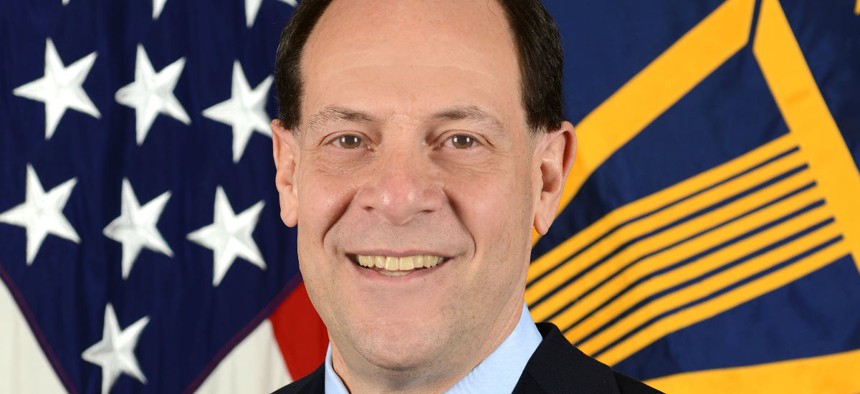
Acting Pentagon IG Glenn Fine Defense Department photo
7 Tips from a Veteran IG
Glenn Fine, a stalwart in the community, appears to have heard his critics.
The tricky job of being a federal inspector general—the dual-hatted officials are independent, yet report to both their agencies and Congress—has been boiled down to seven key tips.
Glenn Fine, who spent 11 years as a well-known Justice Department inspector general before taking on the role of acting IG for the Pentagon in January 2016, penned an essay titled “Seven Principles of Highly Effective Inspectors General.” It appeared in the May journal of the Columbia University Law School’s Center for the Advancement of Public Integrity.
“Of all the criticisms I have heard about OIGs—and I believe I’ve heard most of them—lack of timeliness is the one that resonates with me the most, and the one that is most difficult to address,” writes Fine, whose nomination by President Obama for the permanent DoD IG slot was withdrawn by President Trump in February. “Sometimes, inadequate resources, or a relentless and increasing caseload, make it difficult if not impossible to handle all matters rapidly. There is no easy solution to address the issue of timeliness, but IGs must constantly focus on this area and challenge our staffs to complete their work in a timely and thorough way.”
Fine appears to be responding to some of his critics in the whistleblower advocacy community by including “don’t cut corners” as one of his best practices. “One of the first things I tell new OIG employees is that we live in a glass house, and that we need to follow the rules,” he writes. “If we are guilty of the actions that we criticize others for in our reports, then our credibility will be severely damaged. I also tell them that our credibility is built over many years, report by report, investigation by investigation, but it can crumble with a single misstep by one employee.”
Together, the seven tips are: Remain independent; be tough but fair; tell the good with the bad; provide potential solutions; strive for timeliness; don’t cut corners; and don’t expect to be popular.
That last one Fine illustrates with a detailed anecdote about a former underling who, under questioning, tells a senator that he doesn’t even like Fine, his boss. “We cannot seek to be popular, or to be liked, or to please everyone, because that will not happen,” Fine observes. “Rather, our goal should be that our work is respected, that we are viewed as tough but fair, and that we provide timely recommendations and investigations that have an impact in improving agency operations.”







